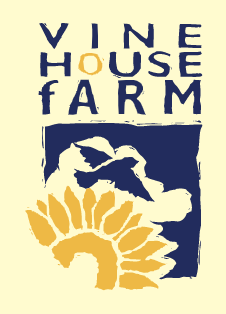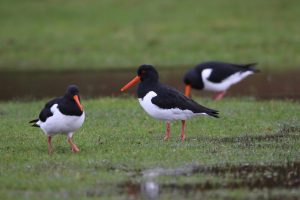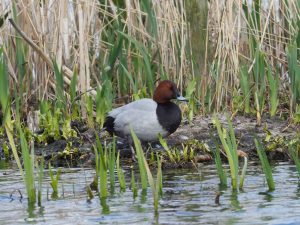
Quite obviously I have to start this newsletter with the weather! Here at Deeping St Nicholas, we only had 3.7mm of rain in July. The only calendar month with no rain during the past 50 years, was May 2020. It rained on April 30th and again on June 4th that year. Our rain this year so far has only been 7ins or 178mm, the driest first seven months of the year since 1976, when we only had 4.6ins or 117mm. July, of course, has been a very warm month with nine days when the temperature has exceeded 27°C. In 1976, we had 21 consecutive days when the temperature exceeded 27°C, the maximum being 36°C.
The dry weather this year started about January 1st. In 1976, the drought started in early May 1975, as we only had 9.4ins of rain in the last eight months of 1975. Our ploughing was never wet that winter and when we were planting our spring crops in 1976, the dust was blowing and seeds in various parts of fields did not germinate at all. We had finished the grain harvest by the end of July. Potatoes were a disaster, there was no grass for any animals, all the reservoirs were empty; the country was in a severe drought.

By the end of July we’d harvested 65% of our wheat. In 1976, we had finished the harvest by the end of July, so that in itself says that the drought this year is not so severe as it was in 1976. I can’t remember harvesting wheat in July since 1976, but I can remember wheat being ready to harvest in July before, but then rain stopped us harvesting until August. Basically, crops are ready two weeks early and that includes the sunflowers.
The harvesting team have been enjoying the situation as there are long combining days in July. The drier the crop is, the better it goes through the combine and it’s also becoming a cheap harvest, as we haven’t had to dry any crops yet. The only disappointment is the organic spring barley which succumbed to yellow rust. This is a foliar disease which starts at the bottom of the plant, working its way up, turning the leaves from green to a light brown colour. Whilst the top leaf of the plant, which is called the flag leaf, is still green, it can convert sunlight into starch. Our organic spring barley flag leaves turned brown about two weeks before they should have done, so we have only lost about a tonne per acre of the yield.
The crop of potatoes from 2021 was in surplus and we still have 800 tons of that crop in store. At the beginning of July, the only market for them was to sell them for cattle food at £10/tonne but as July progressed, they increased in value. The hot weather on July 18th and 19th sapped so much moisture out of the soil, it nearly cooked this year’s potato crop, so we’re now looking at a shortage of potatoes this year. Our 800 tonnes now have a value of £100/tonne and that is likely to increase if we can continue to keep them in good condition. Needless to say, our irrigation equipment has been working flat out and most of our crops will be approaching normal yields. It only takes a shortage of 10% to double the price of a commodity and the hot days in July must have reduced the yield by at least 10%, as not every grower can irrigate.


Linnets and Goldfinches are still nesting as they feed their young on unripe seeds and there are plenty of those in our wild flower strips. However, I fear that they might not be able to find enough seeds on most farms to have a brood in August. Those birds that feed their young on insects will soon all be finished nesting. The insects gear their life cycle to the species of plant that they live on and if that plant ripens early the insect will also mature early and maybe even grow quicker in the warmer weather.
Barn Owls are having their best year since 2014, they are averaging about three fledged young on their first brood and now several pairs have started a second brood, which won’t fledge until the end of October.
A good year for Barn Owls was needed, as we have had two poor breeding years, due to wet weather. High rainfall means less voles and this reduces the population of Owls, Kestrels and Weasels. Once there are less creatures to eat the voles, numbers increase. We have had below average rainfall for the last eight months, this has allowed the vole population to increase which has meant bigger broods of Owls, the dry weather continues and so the voles continue to breed well.
Whilst 2014 was the best year for Barn Owls in the 38 years I have been monitoring numbers, it led to a disastrous year in 2015. All the young Owls stayed around the area and ate all the voles up. When all the voles had been eaten, the young dispersed which left the adults in their boxes with very few voles around, so no Barn Owls bred in Deeping Fen in 2015.
Voles eat grass and seeds, so I am not worried when we have a bad vole year as their population can soon recover. However, if we have a bad year for insects, that is much more of a worry as so many species rely on insects, and insects are in long term decline.
You could say that Swallows are a good insect indicator or barometer – Swallows do not feature in many of our lives now, which says that there are not many flies about. Another indicator is a car’s windscreen, 30 years ago our car windscreens were covered with squashed insects.
We have had Swifts breeding in the village all my life and during the last week of July I have always heard and seen them screaming overhead but not this year, another species that, if it hasn’t already gone, will soon be absent due to the lack of insects.
2022 does not seem to be a good butterfly year, only two years ago I could see 60 Small Tortoiseshell butterflies in the garden mainly on our buddleia. This year I have seen a maximum of five so far.
Our wetland is drying out fast now, the water has done its job for the ducks and the waders, as the water shrinks Egrets and Herons move in to catch all the fish.



